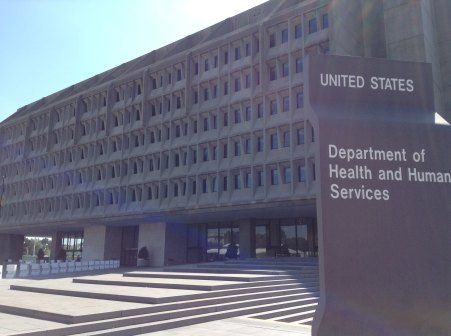Senate panel to hear from Intel manager on health IT
A maker of a tool that could help doctors better customize their patients’ treatments is slated to testify on the promise of health information technology Wednesday before the Senate Committee on Health, Education, Labor and Pensions.
“I will discuss why each of us needs to work with our care teams to build care plans, with goals and accurate tracking and to own our health and our health data — but the healthcare systems need to do a much better job of giving us the tools — and expectations — to do so,” Eric Dishman, general manager of Intel’s Health and Life Sciences division, said Tuesday on Intel’s policy blog.
In his post, an apparent preview of his hearing testimony, Dishman also touts his work in “precision medicine” — which refers to tailoring health care treatments based on a patient’s genes, environment and lifestyle.
Earlier this year, the White House launched a precision medicine research initiative and asked Congress for $215 million in the next fiscal year to support it. And this summer, it put out a call for technologies that could lay the groundwork for precision medicine.
Dishman recently unveiled plans for a Collaborative Cancer Cloud, a medical analytics platform that would allow researchers to securely aggregate critical patient information, such as genomic profiles, imaging and clinical reports, in a single hub. The project was developed by Intel and the Knight Cancer Institute at Oregon Health & Science University.
“To better understand complex diseases like cancer, the medical and technology industries must collaborate to make the growing wealth of insights resulting from secure analysis of public and private genetic datasets accessible for the patient’s benefit,” he wrote in a separate blog post last month. “And if we do, we can turn an agonizing and uncertain process for the patient into a personalized process that occurs all in one day.”
Collaborative Cancer Cloud is designed as an open platform, giving physicians across the world the ability to exchange data. By creating larger data sets, Intel and OHSU hope that researchers will be able to extract more definitive conclusions about cancer treatment and help to identify successful methods on a case-by-case basis. Dishman describes the precision data gap as “one of the biggest of the big data problems,” and says that is is “on the cusp of a remarkable transformation in medicine.”
One of the goals of the Collaborative Cancer Cloud was to deliver effective, specially catered treatment plans within 24 hours by 2020, Dishman wrote last month. Intel estimates that the first iterations of the technology will be available to researchers as early as the first quarter of 2016.






